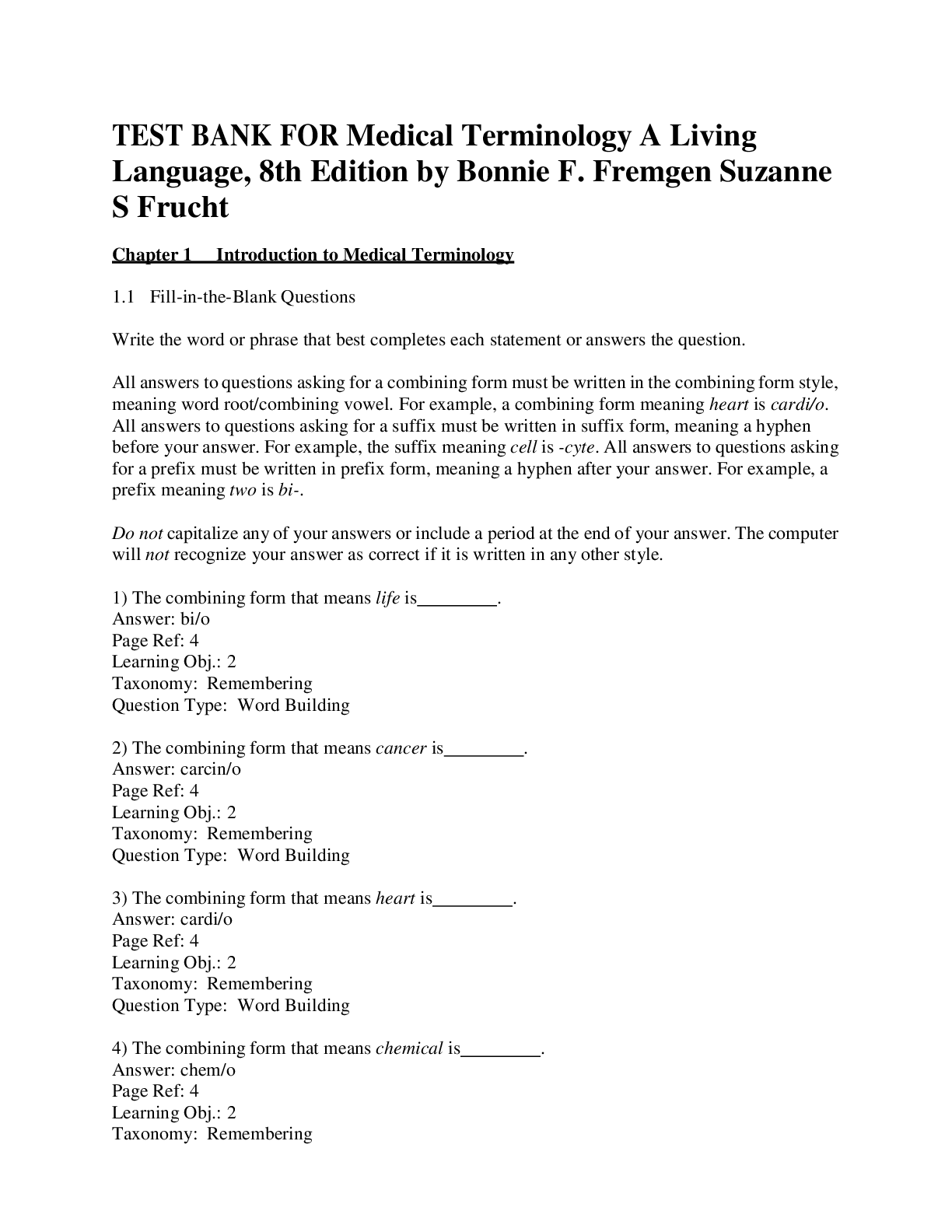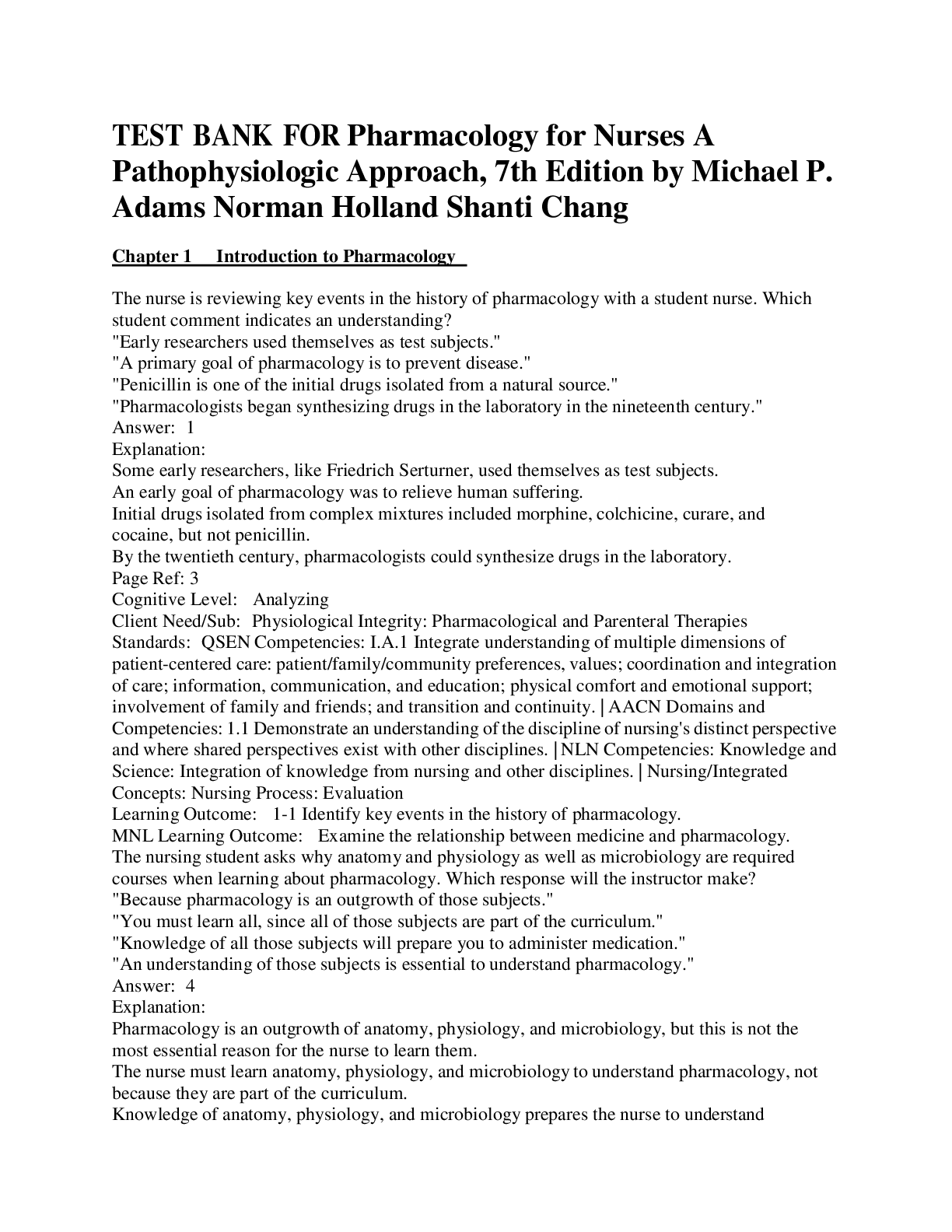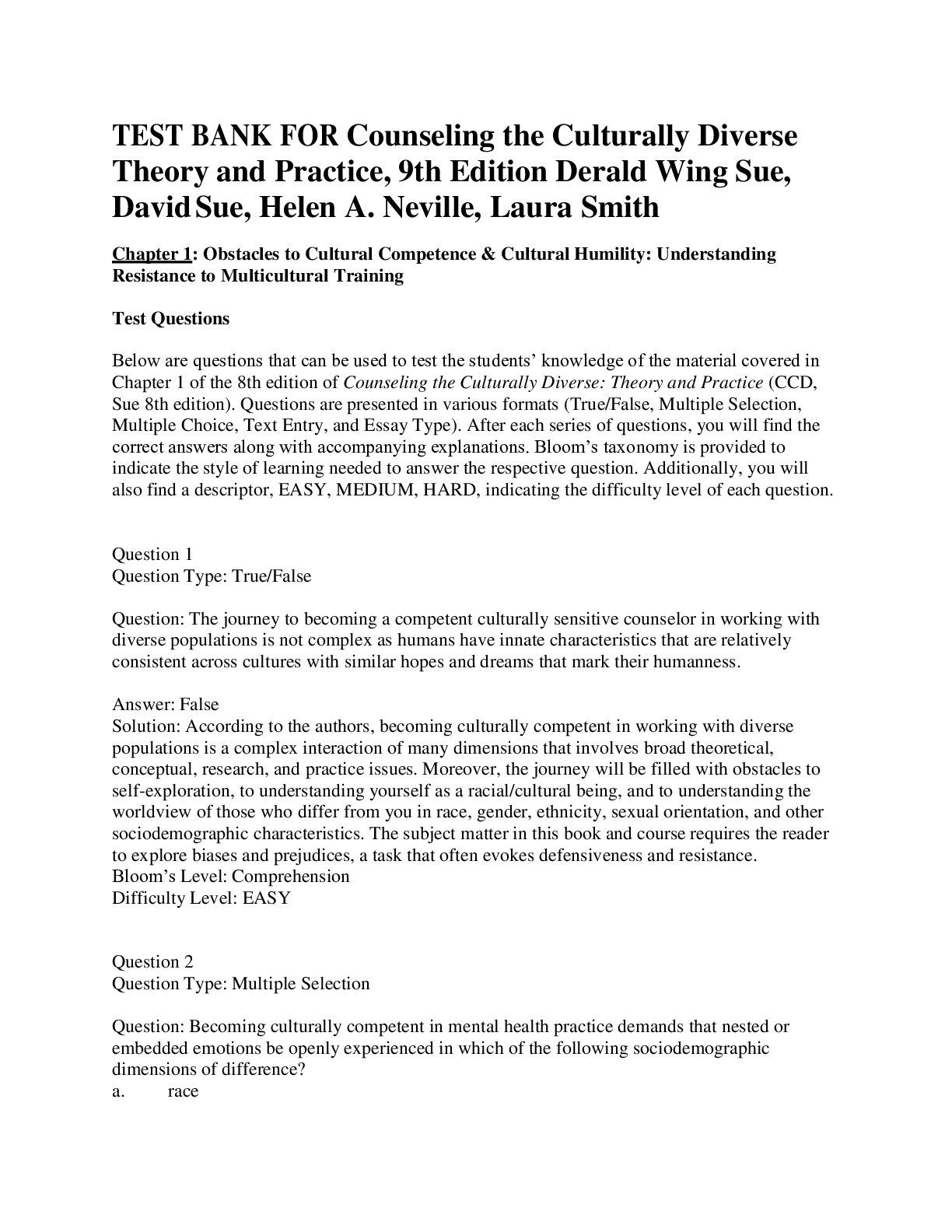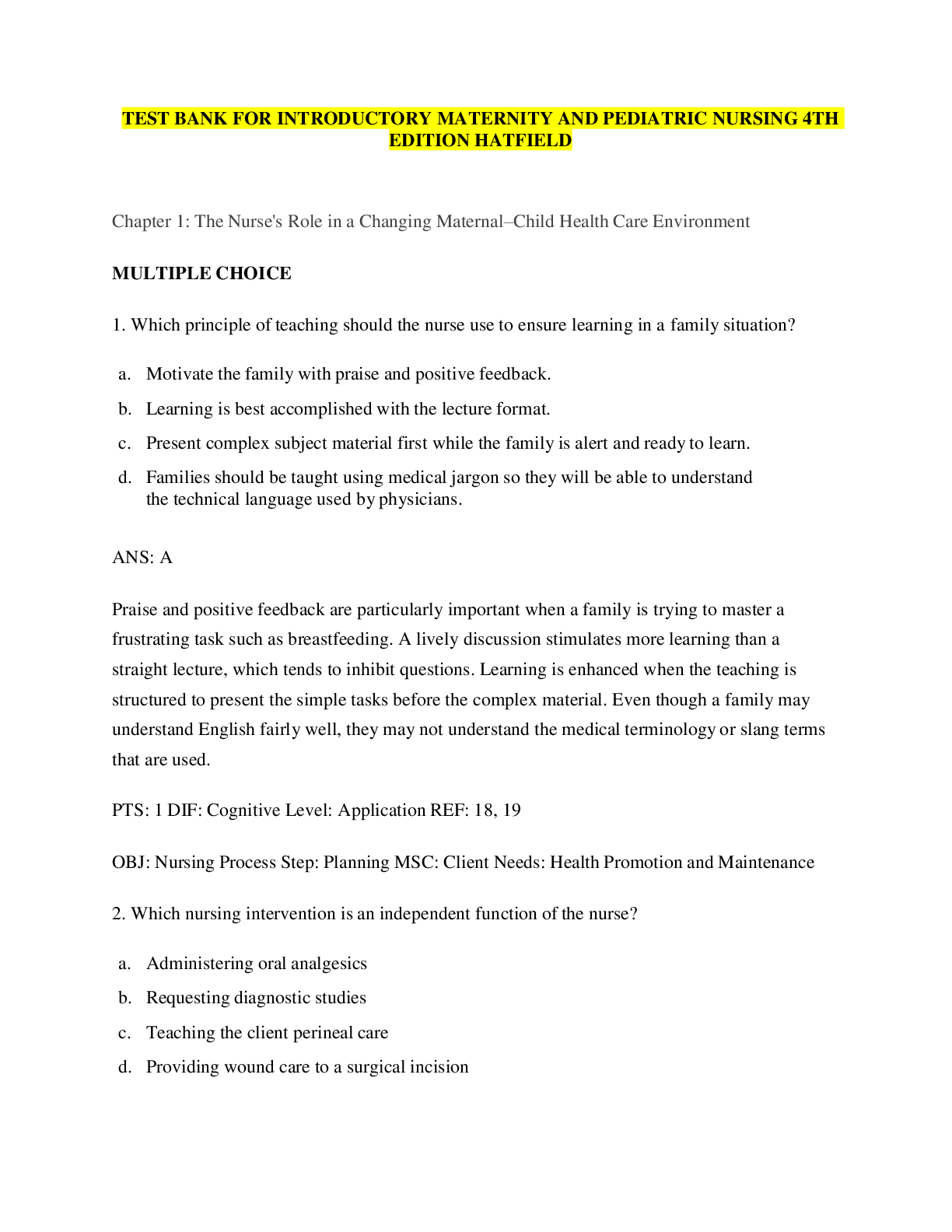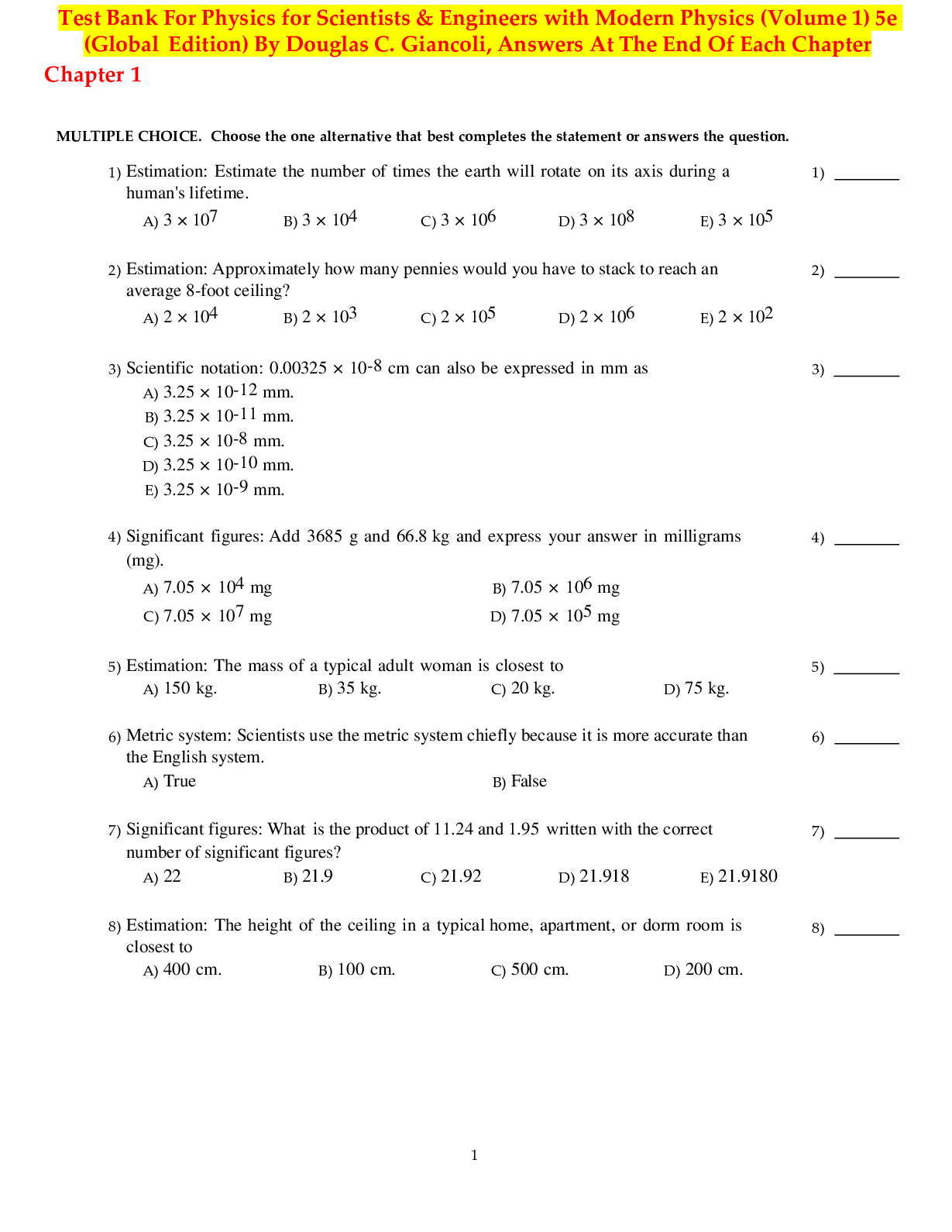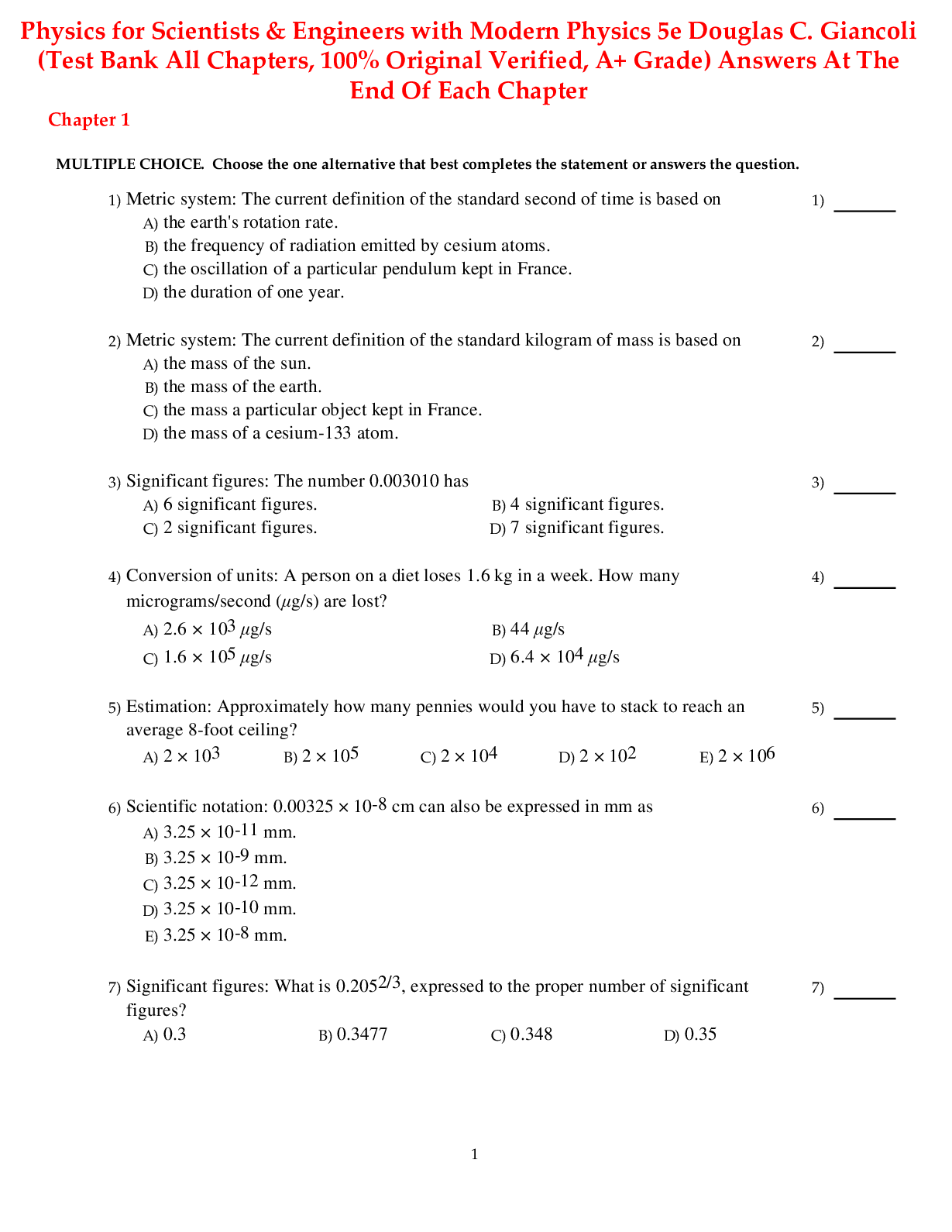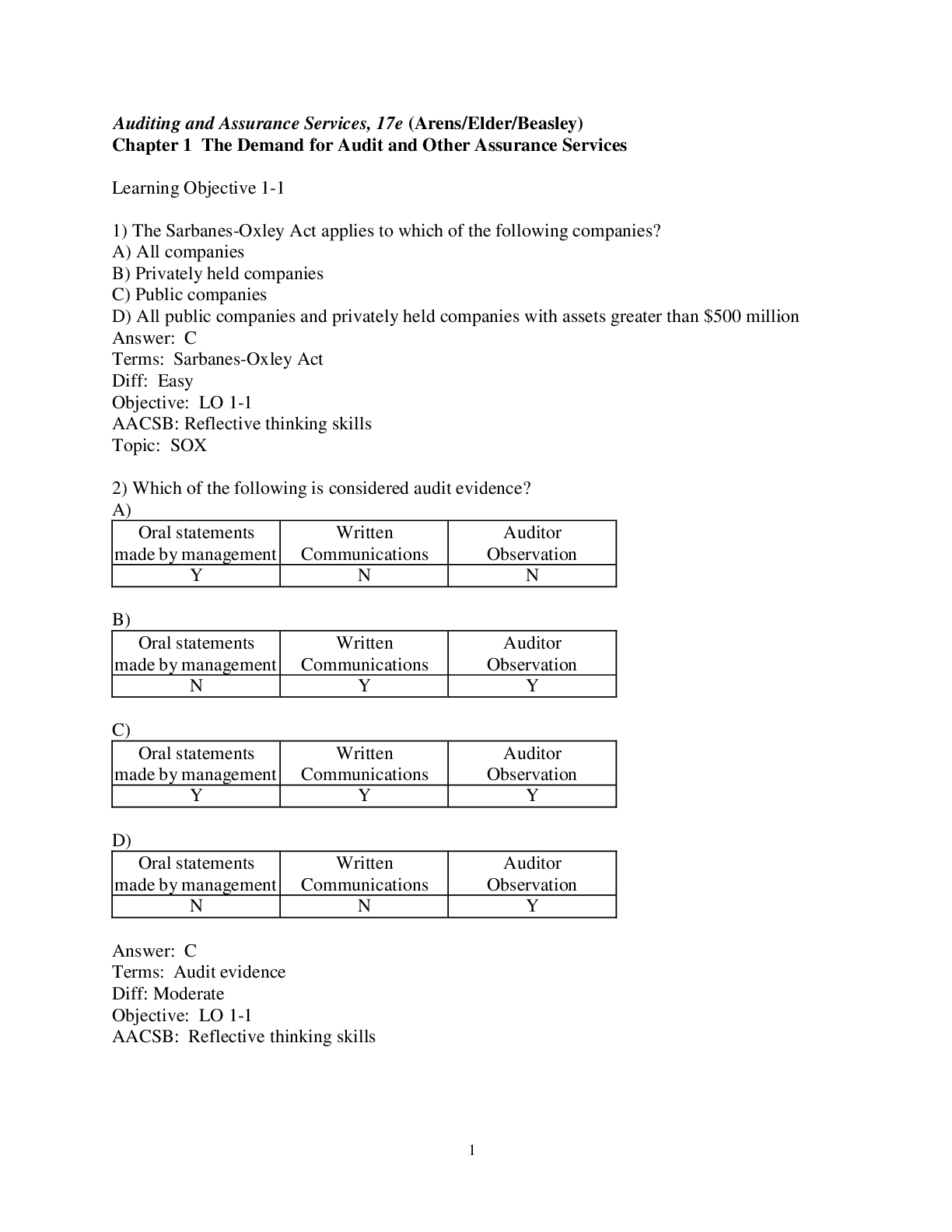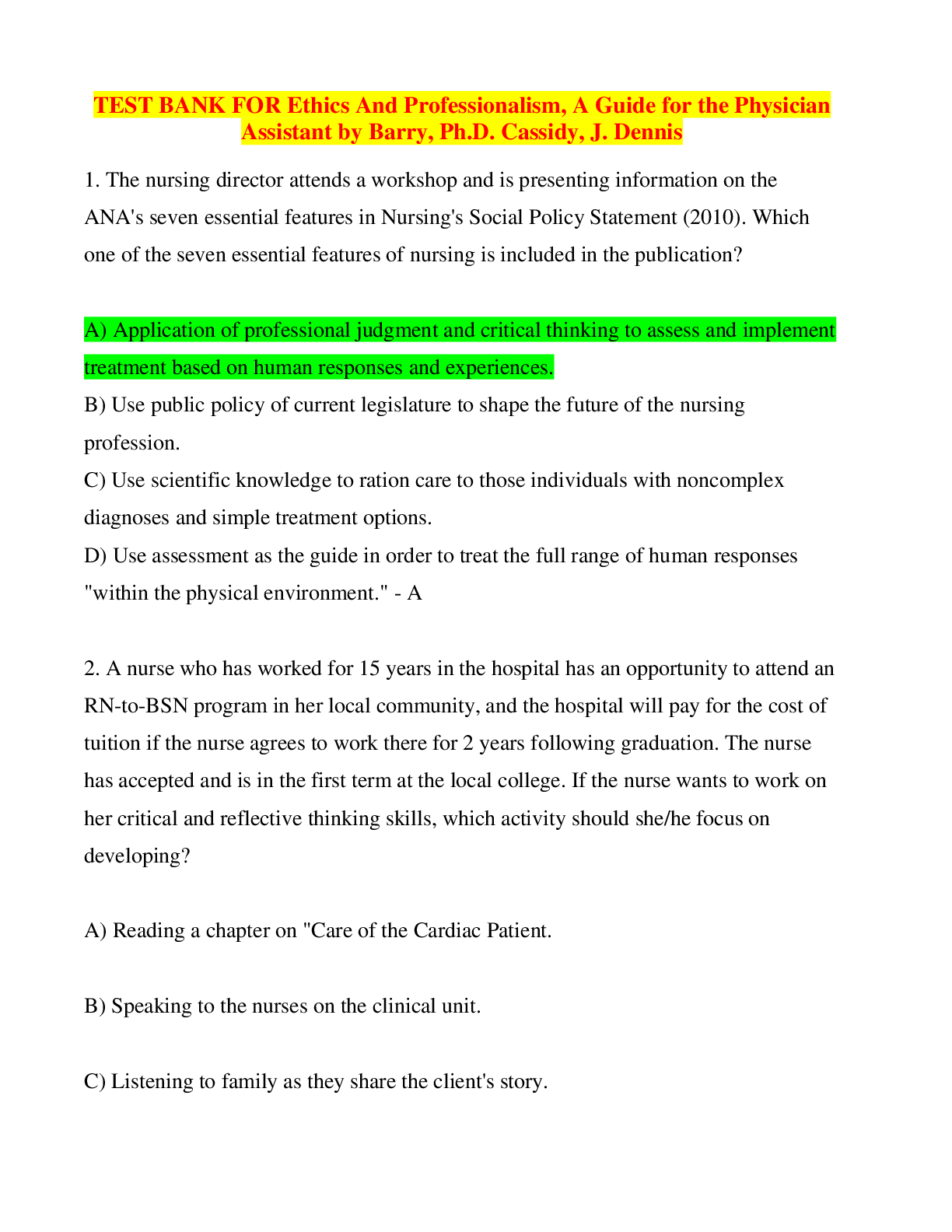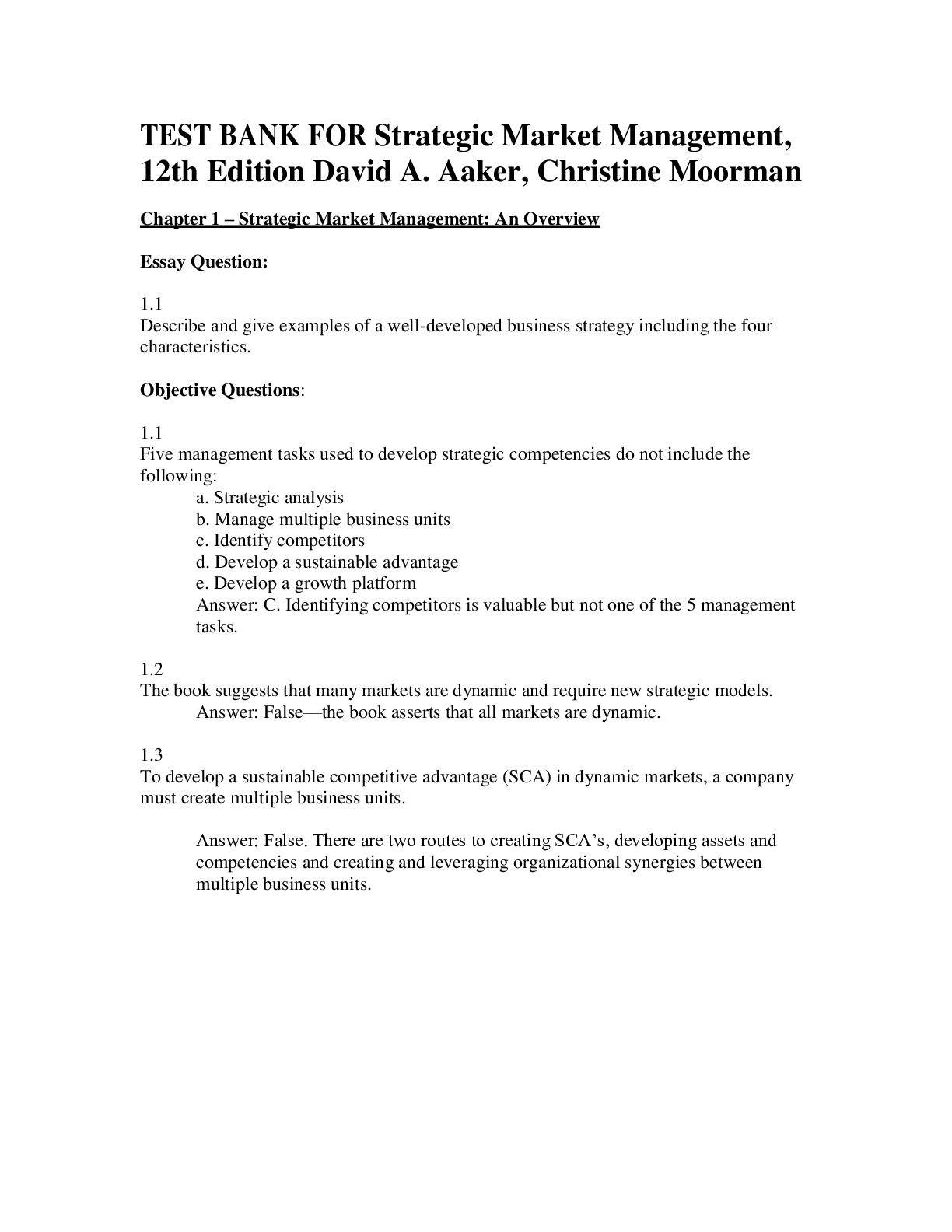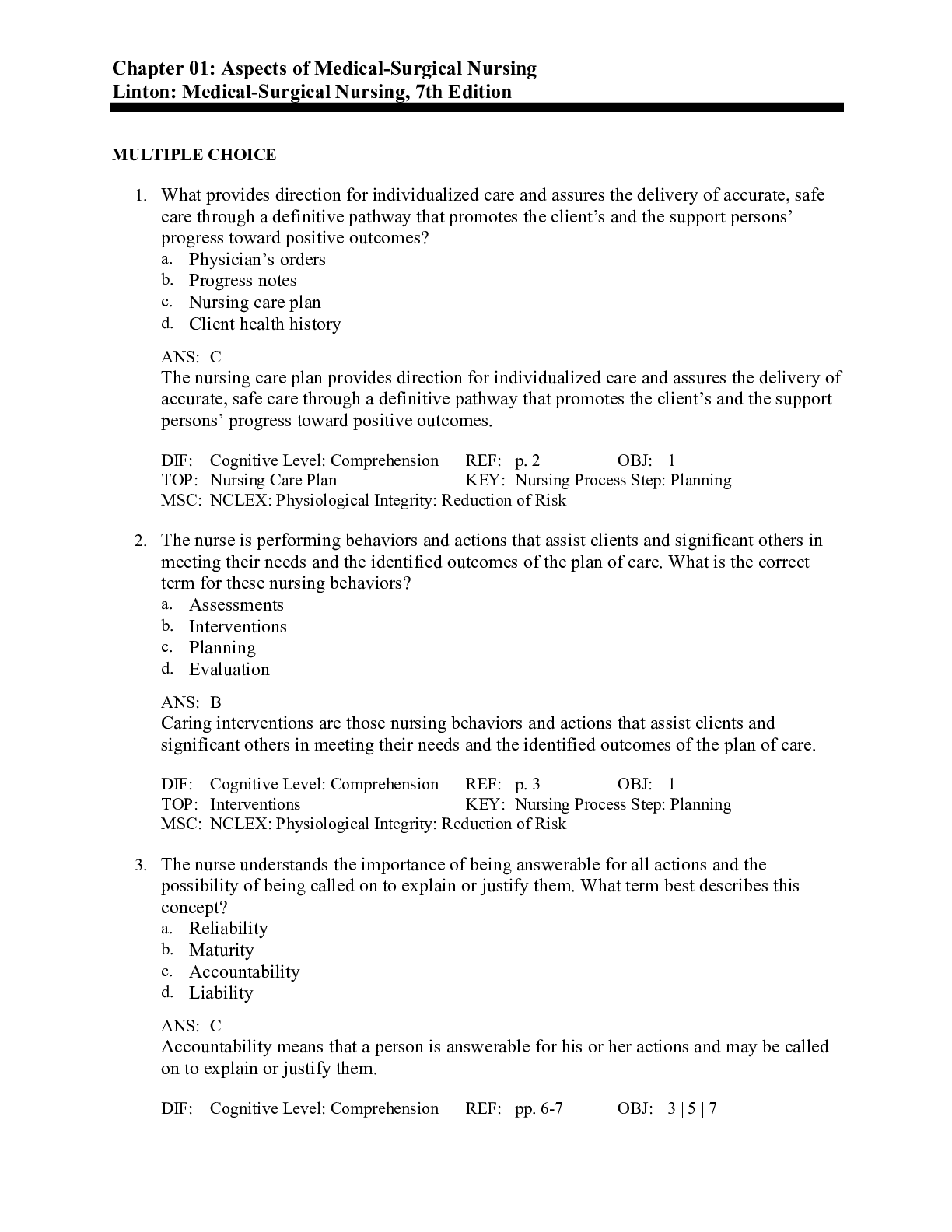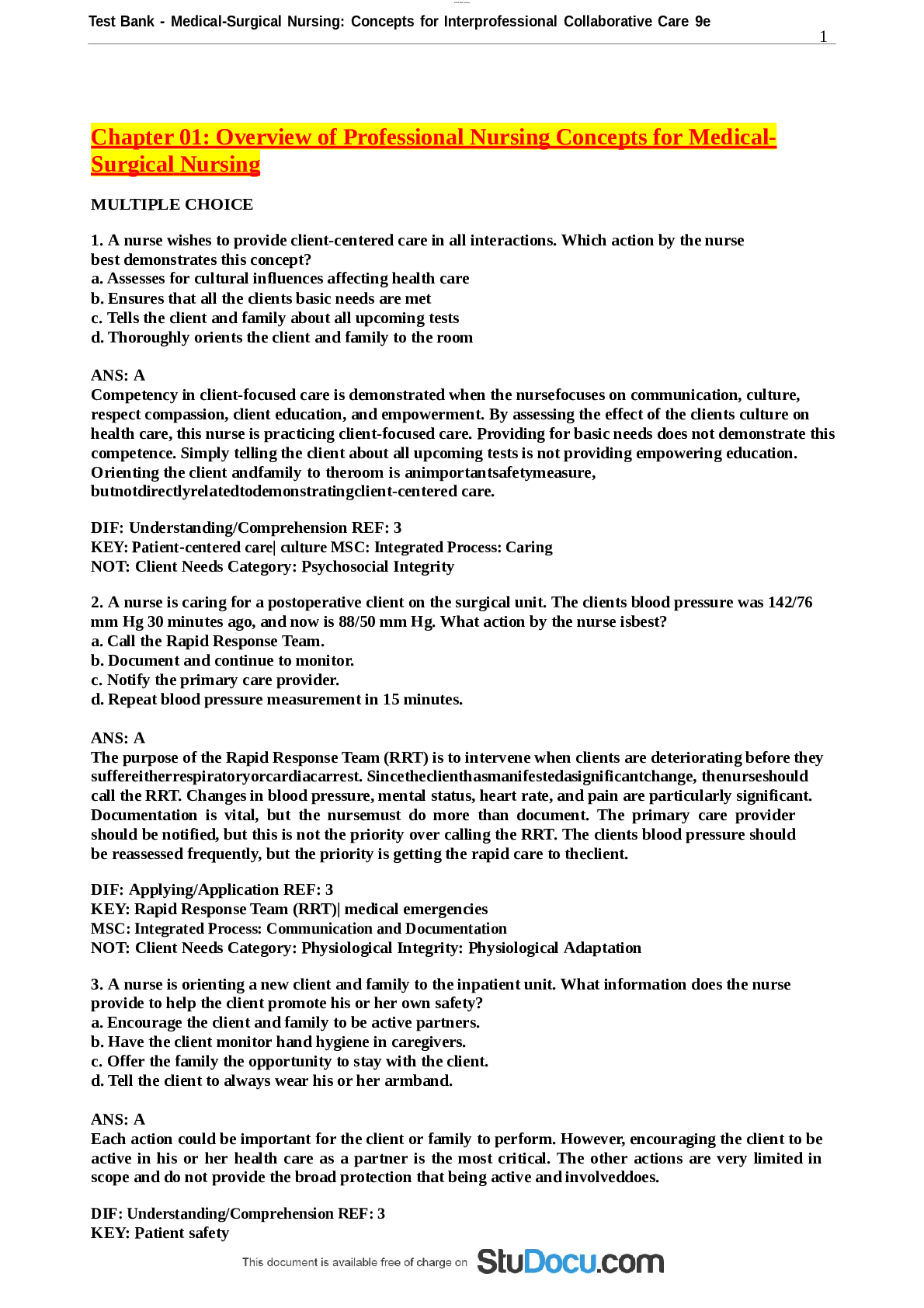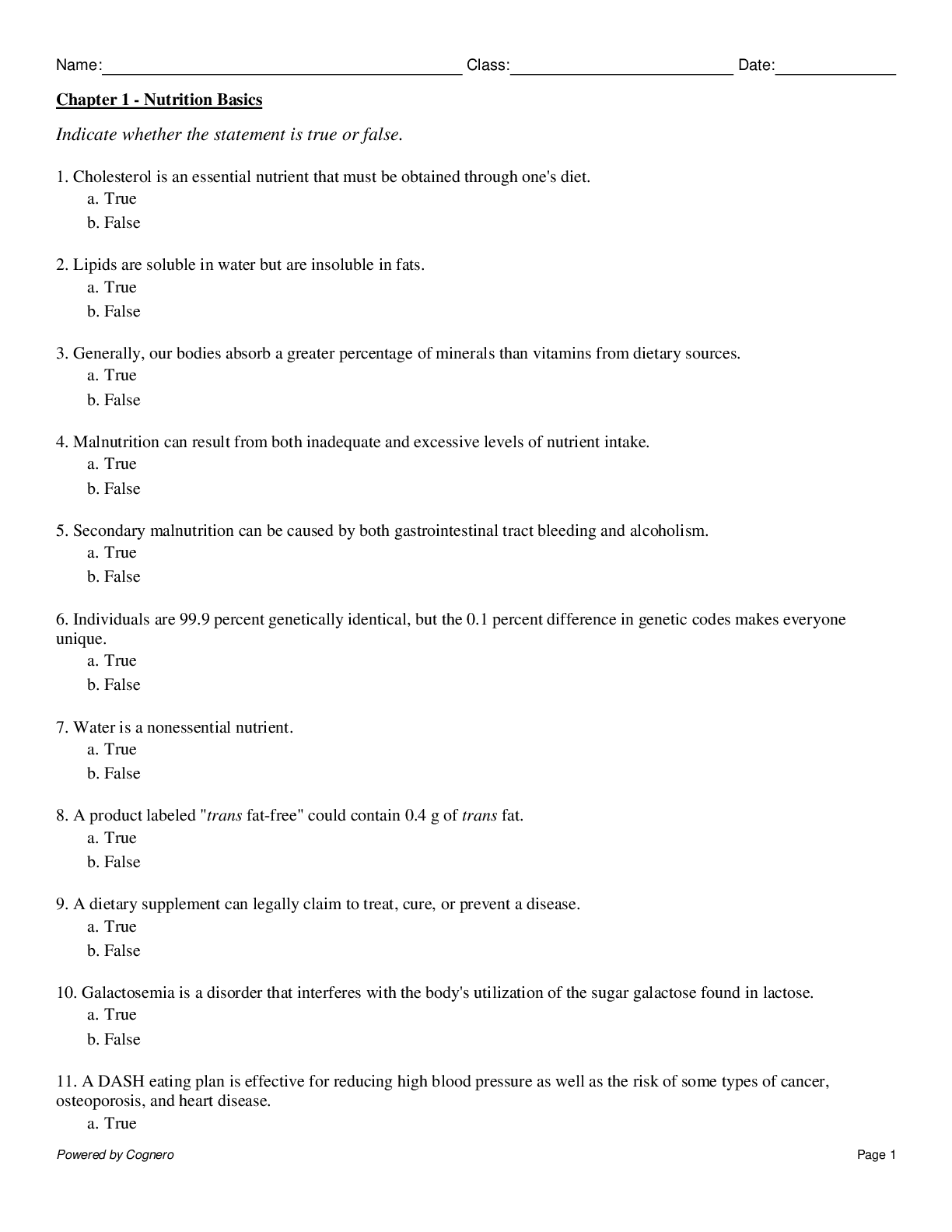Nutrition > TEST BANKS > Nutrition Through the Life Cycle 8e Judith E. Brown (Instructor Manual All Chapters, 100% Original V (All)
Nutrition Through the Life Cycle 8e Judith E. Brown (Instructor Manual All Chapters, 100% Original Verified, A+ Grade)
Document Content and Description Below
Nutrition Through the Life Cycle 8e Judith E. Brown (Instructor Manual All Chapters, 100% Original Verified, A+ Grade)-PURPOSE AND PERSPECTIVE OF THE CHAPTER The purpose of this chapter is to introdu... ce or refresh the students’ memory of basic nutrition knowledge. The chapter will present information about how nutrition paves the way to an understanding of needs and benefits related to nutrition by life-cycle stage. The 10 principles of nutrition will be discussed, as will how each serves a purpose to provide a larger understanding of nutrition and its relationship to overall health. Four public food and nutrition programs are discussed, and readers will be able to identify the basic elements of each, while also being able to design a healthy dietary pattern. CHAPTER OBJECTIVES The following objectives are addressed in this chapter: 1.1 Understand the meaning of the nutrition concepts presented. 1.2 Read and understand the elements of nutrition labels; you will be able to understand the nutritional value of most food products. 1.3 Cite two examples of how nutrient needs change during the life cycle and how nutritional status at one stage during the life cycle can influence health status during another. 1.4 Describe the components of individual-level nutrition assessment. 1.5 Identify the basic elements of four public food and nutrition programs. 1.6 Design a healthy dietary pattern. [return to top] Instructor Manual: Brown, Nutrition Through the Life Cycle, Eighth Edition 2024, 978-035-773-0423; Chapter 1: Nutrition Basics KEY TERMS Nutrients: Chemical substances in foods that are used by the body for growth and health. Food security: Access at all times to a sufficient supply of safe, nutritious foods. Food insecurity: Limited or uncertain availability of safe, nutritious foods, or the ability to acquire them in socially acceptable, legal ways. Calorie: A unit of measure of the amount of energy supplied by food. Also known as the “kilocalorie” (kcal), or the “large Calorie.” Essential nutrients: Substances required for growth and health that cannot be produced, or produced in sufficient amounts, by the body. They must be obtained from the diet. Essential amino acids: Amino acids that cannot be synthesized in adequate amounts by humans and therefore must be obtained from the diet. Also called indispensable amino acids. Nonessential nutrients: Nutrients required for growth and health that can be produced by the body from other components of the diet. Daily values (DVs): Scientifically agreed-upon standards for daily intakes of nutrients from the diet developed for the use on nutrition labels. Insulin resistance: A condition in which cell membranes have a reduced sensitivity to insulin so that more insulin than normal is required to transport a given amount of glucose into cells. Type 2 diabetes: A disease characterized by high blood glucose levels due to the body’s inability to use insulin normally, to produce enough insulin, or both. Glycemic index: A measure of the extent to which blood glucose levels are raised by consumption of an amount of food that contains 50 g of carbohydrate compared to 50 g of glucose. A portion of white bread containing 50 g of carbohydrate is sometimes used for comparison instead of 50 g of glucose. Amino acids: The “building blocks” of protein. Unlike carbohydrates and fats, amino acids contain nitrogen. Nonessential amino acids: Amino acids that can be readily produced by humans from components of the diet. Also referred to as dispensable amino acids. [Show More]
Last updated: 10 months ago
Preview 5 out of 270 pages

Loading document previews ...
Buy this document to get the full access instantly
Instant Download Access after purchase
Buy NowInstant download
We Accept:

Reviews( 0 )
$25.50
Can't find what you want? Try our AI powered Search
Document information
Connected school, study & course
About the document
Uploaded On
Sep 30, 2024
Number of pages
270
Written in
Additional information
This document has been written for:
Uploaded
Sep 30, 2024
Downloads
0
Views
21

